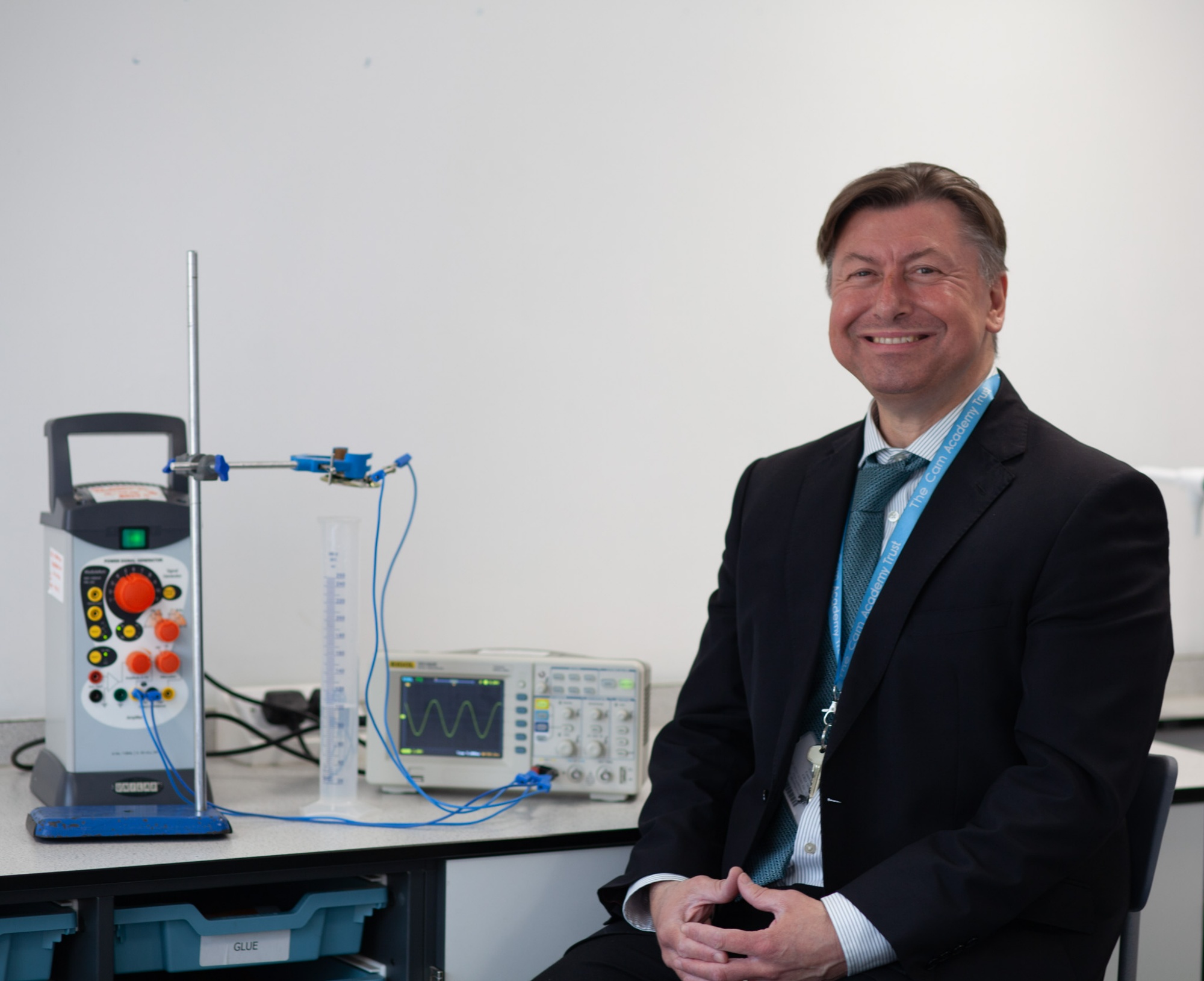Steve Winter, NPQLL: Championing Literacy in Science
 Steve Winter, Head of Physics at Comberton Village College, is currently completing a NPQ in Leading Literacy (NPQLL). We spoke to Steve about his unique motivation for signing up to this NPQ, his experiences so far, and long-term implementation goals.
Steve Winter, Head of Physics at Comberton Village College, is currently completing a NPQ in Leading Literacy (NPQLL). We spoke to Steve about his unique motivation for signing up to this NPQ, his experiences so far, and long-term implementation goals.
Why did you decide the NPQLL was for you?
“I am definitely the odd one out, I must admit, as the vast majority of the NPQLL cohort are English/literacy leads or co-ordinators. However, I have a growing interest in literacy in science, and how pupils read and write in the subject. Over the recent years I have noticed it is getting harder for students to decode exam questions, and many seem to be really struggling, especially at A Level. So my motivation was around how we can improve outcomes for pupils in science by developing their literacy skills. That means developing reading, writing and language. Unfortunately, as a physicist, I am not a specialist in this area. I was originally going to sign up to the NPQ in Senior Leadership, and may well look to do that course next, but the more I read about the NPQLL the more I felt this would have the biggest impact on pupils and I thought ‘let’s give it a go’.”
You started the course in October, and are due to finish this summer. How is it going?
“It has been brilliant so far, and I have learned so much from the rest of the cohort. It has been a challenge incorporating the techniques from the course and embedding them in my science lessons, but I am making progress and beginning to see improvements in pupils’ literacy. Since starting the NPQ, my physics colleagues have shown an interest and are very keen on seeing what a literacy focused physics lesson looks like in practice, how to do it and so on, and as a scientist I am enjoying experimenting with this. Generally, the NPQLL cohort meets up around once a month, and whilst the Teach First materials are all really good, the face-to-face sessions are most valuable. The seminars often turn into Q&As and ‘show and tells’, with colleagues from primary and secondary phases having the opportunity to share ideas and experiences.”
How are you applying the learning in the classroom?
“A good example is a Year 7 lesson I recently took. Generally, this age group use OneNote for their physics lessons where they read online worksheets and fill in missing words in gap-fill activities. I am interested in how we can increase not only their tier 3 vocabulary but also their tier 2 vocabulary, and how to embed reading and writing tasks in the lesson. Ultimately the question is how we coach and embed literacy skills in all our lessons, and at this stage I don’t have an answer, unfortunately. In my last lesson I spent a good chunk of time introducing new science words, but also tier 2 words which would be in the text they would be using later on in the lesson. Good example of words that pupils had difficulty with were protostar and fuse as in fusion. Contextualising the words, and more importantly having the opportunity to discuss them in a lesson, really helped. However, it did affect the amount of content I could cover in this lesson, as introducing vocabulary, reading, writing and discussion take up time when you have got to get through set content every lesson.”
What does success look like for you from the NPQLL?
“For all science lessons to have a literacy focus – it should be there in every lesson – and for literacy to have an even greater profile within all departments. If we can improve reading and writing skills then pupils’ outcomes will improve, it’s a no-brainer. In my opinion, pupils seem to talk less these days, possibly because a lot of their social interactions are via mobile phones, so giving them the opportunity for high-quality discussion in lessons will really help them. Embedding literacy in all lessons will take a lot of strategic planning, and I believe to do this effectively a five-year plan would be required as it would involve major changes to our scheme of work. I would like other physicists to sign up to the course too. It will help their practice, and the more literacy champions we have in any school or department, the more likely literacy will be embedded. In fact, this goes beyond physics. If I had a magic wand, every teacher should be given an opportunity to benefit from a course like this.”
Would you recommend the NPQLL to others, and if so why?
“Definitely. It was a risk for me personally, but it has been fantastic. It has improved my own ability to teach fluency, and I just want to find out more and more as I am going along. The NPQLL is one of the most useful courses I have been part of in recent years.”
Click here for more information on the CPTSH NPQ in Leading Literacy.
